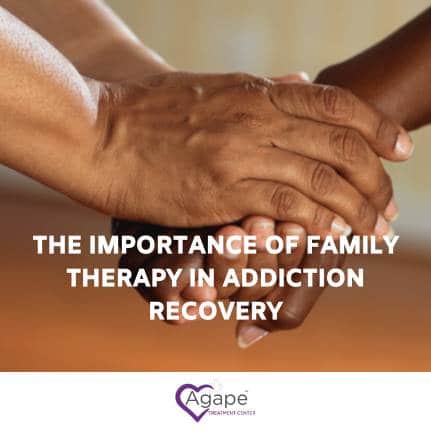
Table of Contents
ToggleWhat is Family Therapy?
Family therapy programs offer family members a chance to express themselves and heal from the destruction of addiction. It also makes way for education on the disease of addiction and equips each member of the family unit with the necessary tools to improve relationships. Family therapy utilizes an array of therapeutic approaches that focus on utilizing the family’s strengths to help cultivate a healthy dynamic and encourage the recovering addict to maintain his/her sobriety.
Family therapy primarily focuses on the relationships within the family unit and aims to understand and validate the experiences of each family member. The goal of family therapy in addiction treatment is to bring clarity to each relationship while also fostering healing and unity. Family therapists will explore family history as well as how substance abuse is embedded in a cycle of interaction within dysfunctional family dynamics.
Therapeutic family interventions often include:
- Discussing family roles
- Identifying and improving communication and trust within each member of the family
- Rebuilding trust
- Understanding codependency and learning healthy boundaries
- Identifying healthy ways to interact and respect each individual family member’s needs
Most addiction specialists recognize that substance abuse can often be correlated with dysfunction within the family unit. Family therapy is implemented based on the premise that each person within the family system affects how it functions and can play a major role in addiction recovery. For example, the entire family unit suffers when one member of the family is struggling with addiction. Therefore, other sober members of the family often discover that they have adopted unhealthy coping skills with the intention to support a flawed family system. Furthermore, it is absolutely vital for all members of the family to actively seek family therapy when a member is engaging in a substance abuse rehab program.
Types of Family Therapies
Specific family therapy styles and formats vary amongst children and adults. Appropriate treatment approaches should be determined based on the specific needs of the individual and/or the family. It is important that each member of the family feels safe and able to voice their feelings and opinions without fear of retribution or negative consequences. Unique types of family therapy that may be used in substance abuse treatment include:
- Behavioral Contracting – This specific type of therapy allows the therapist to work with the family in order to develop a written contract outlining the boundaries and guidelines of maintaining a substance-free home. During this process, the therapist will help family members identify triggers of substance abuse, predict potential conflict, and develop healthy coping skills and strategies to avoid them.
- Behavioral Marital Therapy – Behavioral marital therapy encourages each spouse to create a drug-free environment while developing healthy communication skills, coping skills, creating a relapse prevention plan, and reinforcing abstinence.
- Multidimensional Family Therapy – This type of therapy is typically used with adolescents struggling with substance abuse as well as behavioral issues. The therapist will meet with the teen as well as their family. Teens will work with the therapist to improve peer and family relationships while the therapist works with parents on any addiction, mental health, and parenting skills.
Benefits of Family Therapy in Addiction Recovery
One of the most important goals of family therapy in addiction recovery is to overcome potential obstacles to recovery. Many addicts often feel scrutinized, criticized, and judged by family members while sober family members may be reluctant to admit they have enabled the destructive behaviors of their addicted loved one. Family therapy creates a safe and neutral environment that allows a therapist to engage with the family and open the lines of communication in order to cultivate a more harmonious dynamic.
Some benefits of family therapy by individuals in substance abuse treatment and their families include:
- Better understanding and relinquishing stigmas of the nature of the disease of addiction – Through education, each member of the family undergoes assessment and gains insight from a therapist.
- Identifying and shifting maladaptive family patterns – Treating each member of the family will create the most positive outcome for addiction recovery
- Improving communication – Establishing and promoting healthy communication in a system where there may have been no communication or emotional involvement will help the recovering individual be more open and honest about his/her addiction. Improving communication within the family unit can positively impact the success rate of an individual in addiction recovery.
- Rebuilding trust – Addiction, manipulation, and dishonesty often go hand-in-hand. Family members often struggle to welcome vulnerability to help a loved one struggling with addiction. Improved communication and honest interaction, while witnessing positive changes can help mend broken trust.
- Setting Boundaries – Clarifying boundaries is often a difficult task. However, establishing healthy boundaries is a necessary step towards healing and healthy recovery for the entire family.
- Sharing honest feelings – During active addiction, most family members are frightened, resentful, and bridges are often burned. Allowing all members of the family to express their honest feelings can cultivate reconciliation and balance feelings while rebuilding relationships.
Find a Family Therapy Program Today
If you or a family member is struggling with substance abuse and in need of a family program, call Agape Treatment Center today! Our compassionate team will work with you and your addicted loved one to address your concerns and answer any questions you may have about treatment options.






